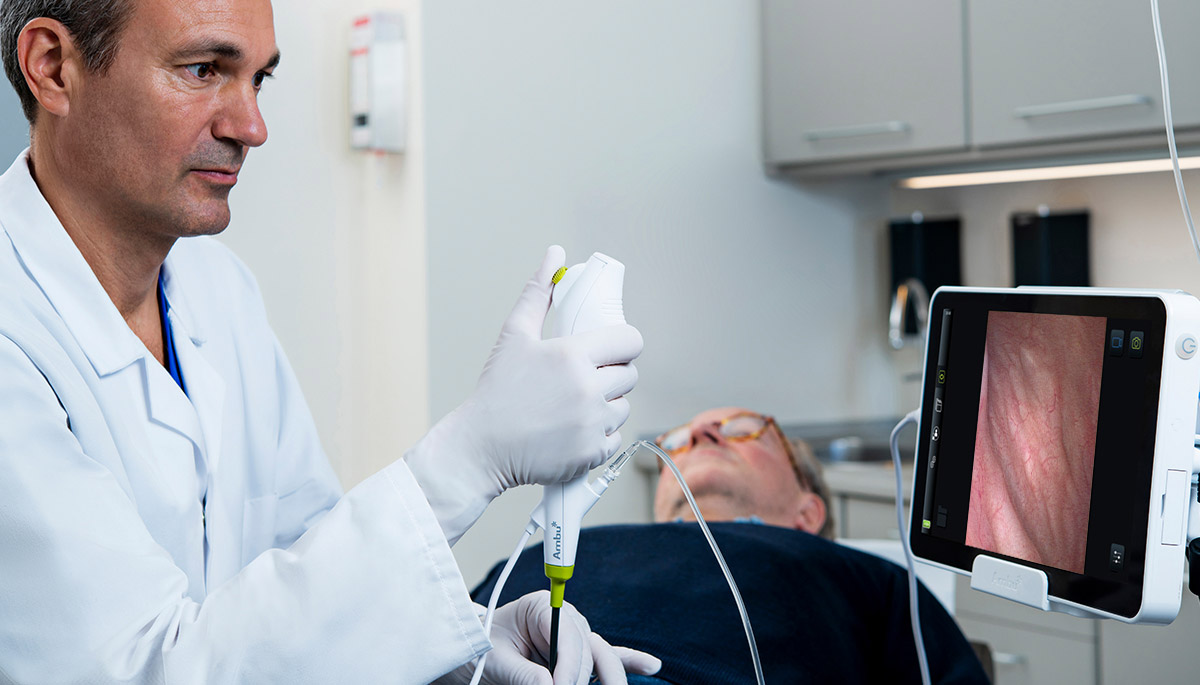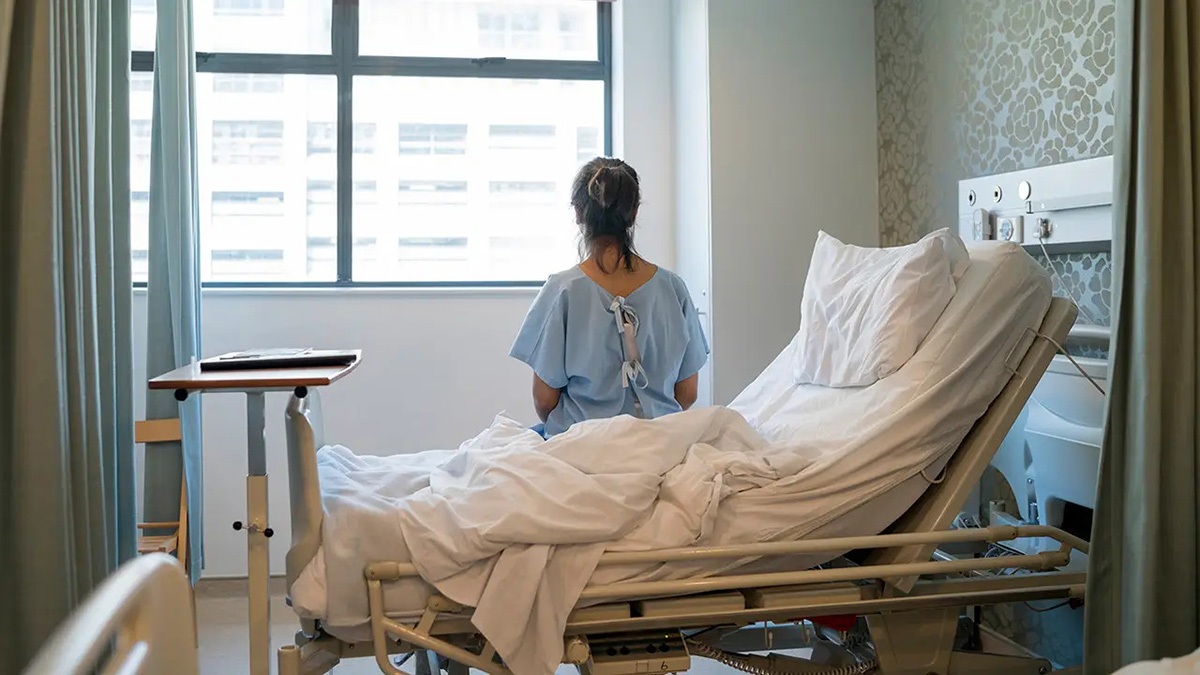Home>Finance>How Much Does Breast Reduction Cost Without Insurance?


Finance
How Much Does Breast Reduction Cost Without Insurance?
Published: November 18, 2023
Learn the cost of breast reduction surgery without insurance coverage. Find financing options available for this procedure to make it more affordable and accessible.
(Many of the links in this article redirect to a specific reviewed product. Your purchase of these products through affiliate links helps to generate commission for LiveWell, at no extra cost. Learn more)
Table of Contents
Introduction
Are you considering breast reduction surgery but wondering about the cost, especially if you don’t have insurance coverage? Breast reduction surgery, also known as reduction mammoplasty, is a surgical procedure aimed at reducing the size and reshaping the breasts. It can help alleviate physical discomfort, improve self-confidence, and enhance overall well-being.
While breast reduction surgery offers numerous benefits, the cost can be a significant concern. Without insurance coverage, it is crucial to have a clear understanding of the potential expenses associated with the procedure. In this article, we will delve into the factors that can affect the cost of breast reduction without insurance, explore the average cost, discuss additional costs to consider, and highlight financing options that may be available to you.
Keep in mind that the following information is meant to serve as a general guide, and the costs may vary depending on various factors, such as your geographical location, the extent of the procedure, and the surgeon’s expertise.
Factors Affecting the Cost of Breast Reduction
Several factors can influence the cost of breast reduction surgery without insurance. Understanding these factors can help you estimate the potential expenses involved and make an informed decision.
- Geographical Location: The cost of breast reduction surgery can vary significantly based on your geographical location. Generally, urban areas and regions with a high cost of living tend to have higher surgical fees compared to rural areas.
- Surgeon’s Experience and Reputation: The qualifications, expertise, and reputation of the surgeon can play a role in determining the cost. Highly experienced and esteemed surgeons may charge higher fees due to their skill and track record.
- Extent of Surgery: The complexity and extent of the breast reduction procedure can impact the cost. Factors such as the volume of breast tissue to be removed, the need for additional procedures (such as liposuction or breast lift), and the use of advanced techniques can contribute to the overall cost.
- Facility Fees: The surgical facility where the procedure takes place may have its own fees. These include operating room charges, anesthesia fees, and post-operative care costs. High-end facilities or hospitals tend to have higher fees compared to outpatient clinics.
- Medical Tests and Consultations: Prior to the surgery, you may need to undergo medical tests and consultations with the surgeon. These additional expenses, such as laboratory tests, imaging scans, and pre-operative assessments, can add to the overall cost.
- Post-Operative Care: After the surgery, you might need to wear special garments, undergo follow-up visits, and take medications. These post-operative care expenses should be taken into account when considering the total cost.
It is essential to consult with a reputable plastic surgeon to assess your specific case and provide a personalized cost estimate. They will consider the factors mentioned above and provide you with a clearer picture of the expected expenses involved in your breast reduction surgery.
Average Cost of Breast Reduction without Insurance
The cost of breast reduction surgery without insurance can vary depending on the factors mentioned earlier. On average, the total cost can range from $5,000 to $10,000 or more. It is important to note that this estimate represents the surgeon’s fee only and does not include other associated expenses.
The surgeon’s fee typically covers their expertise, time, and effort during the surgery. However, it is crucial to inquire about what exactly is included in the surgeon’s fee, as it may vary from one practitioner to another. Some surgeons may include post-operative care visits and follow-up appointments in their fee, while others may charge these expenses separately.
Aside from the surgeon’s fee, you should also consider additional costs that may be incurred, such as facility fees, anesthesia fees, and any necessary medical tests or consultations. These additional expenses can range from a few hundred dollars to several thousand, depending on the complexity of the procedure and the specific requirements of your case.
It is worth noting that the cost of breast reduction surgery is an investment in your well-being and self-confidence. While it may seem substantial, the procedure can have a positive impact on your physical and emotional health. To ensure you are making an informed decision, consult with multiple reputable plastic surgeons, compare their fees, and thoroughly discuss what is included in their quotes.
Remember, it is crucial not to compromise quality for a lower price. Choosing a highly skilled and experienced surgeon is essential for achieving safe and successful results.
Keep in mind that the costs mentioned here are general estimates and can vary. Factors such as your geographical location, the complexity of your case, and the level of expertise of your surgeon can all impact the final cost. It is best to consult with a qualified plastic surgeon who can provide you with a more accurate cost estimate based on your specific circumstances.
Additional Costs to Consider
When planning for breast reduction surgery without insurance, it is important to factor in additional costs that may arise before, during, and after the procedure. These costs can significantly impact the overall expense of the surgery. Here are some additional expenses to consider:
- Pre-Operative Medical Tests and Consultations: Before undergoing breast reduction surgery, you may need to undergo various medical tests and consultations with your surgeon. These can include blood tests, mammograms, and other imaging studies. The costs of these tests and consultations can vary depending on your location and healthcare provider.
- Anesthesia Fees: Breast reduction surgery usually requires the use of general anesthesia, which comes with its own set of costs. Anesthesia fees can vary based on factors such as the complexity of the procedure and the duration of anesthesia required.
- Facility Fees: The surgical facility where the procedure takes place may charge separate fees. This includes the cost of the operating room, nursing staff, and other resources utilized during the surgery. Be sure to inquire about the facility fees when discussing the cost of your breast reduction surgery.
- Post-Operative Medications and Garments: After the surgery, you may be prescribed pain medications, antibiotics, and other necessary medications to aid in your recovery. Additionally, you may need to wear special post-operative garments or bras. These expenses should be considered when calculating the overall cost of the procedure.
- Transportation and Accommodation: If you live far from the surgical facility or need to travel for your breast reduction surgery, you should account for transportation and accommodation costs. These expenses can vary depending on your location and the duration of your stay.
- Additional Procedures: In some cases, additional procedures may be necessary to achieve the desired results. For example, if you require a breast lift in conjunction with the reduction, the cost will be higher. Consulting with your surgeon will help determine whether any additional procedures are required and their associated costs.
It is essential to discuss all potential additional costs with your surgeon during the consultation phase so that you can properly budget for your breast reduction surgery. Transparency about these expenses will ensure that you are financially prepared for the entire process.
Financing Options for Breast Reduction Surgery
If you do not have insurance coverage for your breast reduction surgery, there are several financing options available to help make the procedure more affordable. These options can help you manage the cost of the surgery and spread it out over a period of time. Here are some common financing options to consider:
- Healthcare Financing Companies: Many medical financing companies offer loans specifically designed for elective procedures like breast reduction surgery. These loans often come with competitive interest rates and flexible repayment terms, making it easier to manage the cost of the surgery within your budget. Research different healthcare financing companies and compare their terms and rates to find the one that best suits your needs.
- Payment Plans with Your Surgeon: Some surgeons may offer payment plans to help patients afford the cost of breast reduction surgery. This allows you to pay for the procedure in smaller, manageable installments over time. Discuss this option with your surgeon to see if they offer any payment plans or if they can refer you to a financing company that does.
- Saving and Budgeting: If you have enough time before the surgery, consider saving money specifically for the procedure. Create a budget and set aside a portion of your income each month towards the cost of the surgery. This method may take longer to accumulate the necessary funds, but it can help you avoid interest charges or loan repayment obligations.
- Credit Cards: If you have a credit card with a low-interest rate or an introductory 0% APR offer, you can use it to cover the cost of breast reduction surgery. However, it is essential to make sure you can pay off the balance within the promotional period to avoid high interest charges.
- Medical Credit Cards: Some credit cards are specifically designed for medical expenses. These cards often come with special financing options, such as low or no-interest periods. Research different medical credit cards and compare their terms and benefits to find the one that suits your needs.
When considering financing options, it is important to assess your financial situation and choose the option that best fits your needs and capabilities. Remember to read and understand all the terms and conditions associated with any financing agreement before committing to it.
Lastly, don’t hesitate to discuss your financial concerns with your surgeon. They may have additional recommendations or resources to help you navigate the cost of the procedure.
Conclusion
Considering breast reduction surgery is a significant decision, and understanding the cost implications is an important part of the process, especially if you do not have insurance coverage. While the cost of breast reduction without insurance can vary, it is essential to consider various factors such as geographical location, surgeon’s experience, extent of surgery, facility fees, and additional costs.
The average cost of breast reduction surgery without insurance typically ranges from $5,000 to $10,000 or more. However, this estimate may vary based on individual circumstances and specific requirements. It is crucial to consult with reputable plastic surgeons to obtain personalized cost estimates and take into account any additional expenses such as consultations, anesthesia fees, facility fees, post-operative care, and medications.
If you do not have insurance coverage or find it challenging to afford the upfront cost, there are financing options available. Healthcare financing companies, payment plans with your surgeon, saving and budgeting, credit cards, and medical credit cards are all potential avenues to explore.
Prioritize your health and consult with qualified and experienced plastic surgeons to ensure your safety and achieve the best possible results. Make sure to discuss all financial aspects and any concerns you may have. Budgeting, planning, and exploring various financing options will help make breast reduction surgery more accessible and manageable.
Ultimately, the investment in breast reduction surgery can have a profound positive impact on your physical well-being, self-confidence, and overall quality of life. Take the time to thoroughly research and make an informed decision that aligns with your goals and financial capabilities.














